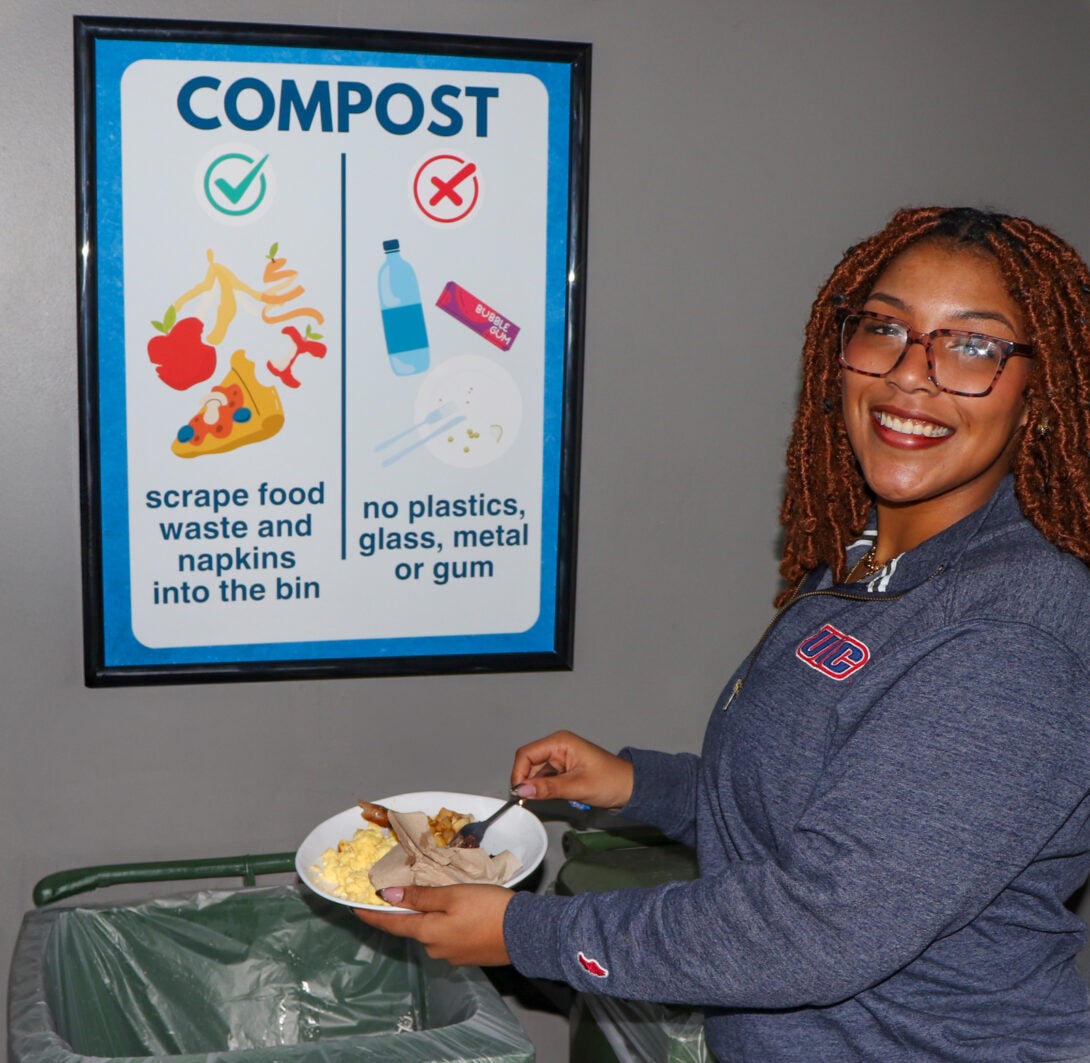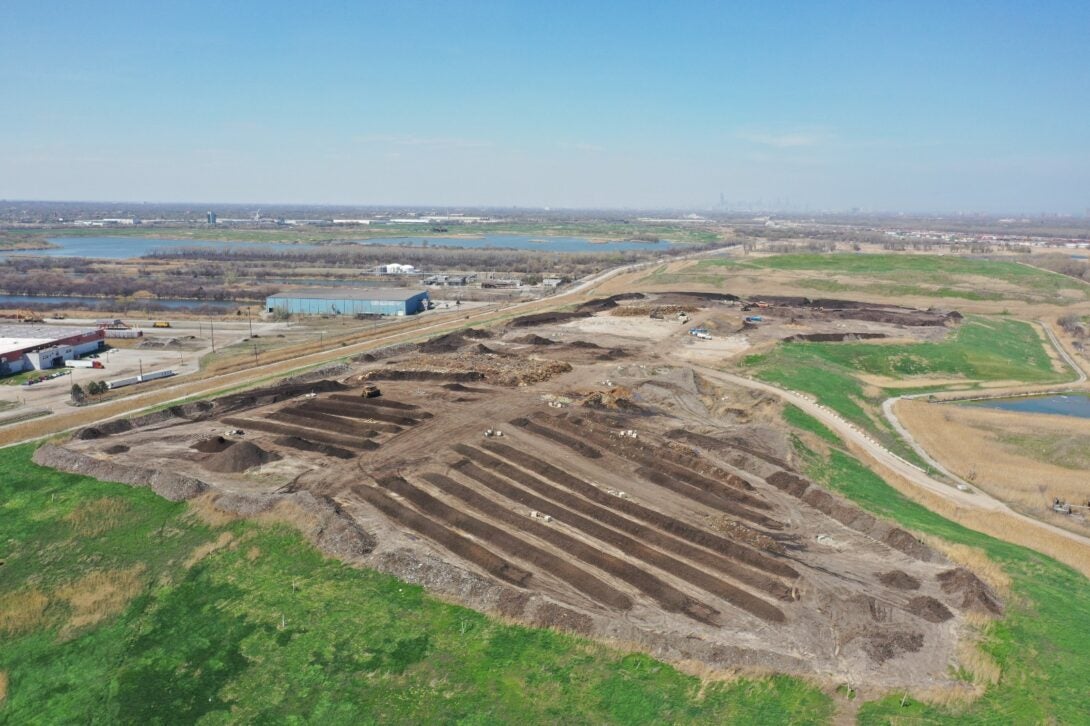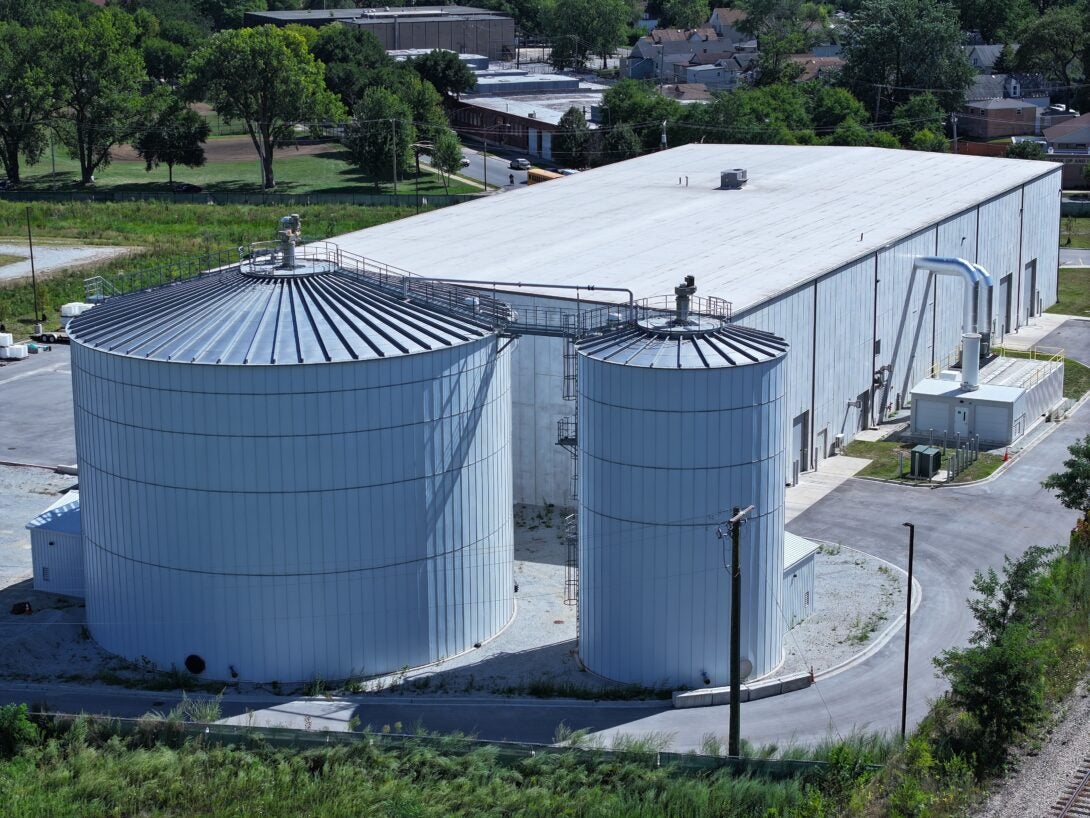Composting
Composting is nature’s way of recycling. It converts organic materials, including food scraps such as fruits and vegetables and yard waste such as leaves, grass and tree branches, into dark, nutrient-rich compost, preserving valuable resources that can be returned to gardens, farms and landscapes.
When food and yard waste are sent to landfills, they decompose anaerobically, releasing methane, a greenhouse gas 28 times more potent at trapping heat than carbon dioxide. Landfills are the third-largest source of methane emissions globally, with food waste responsible for approximately 58% of these emissions.
Benefits of composting Heading link

Benefits of composting
Composting offers several environmental and economic benefits:
- Reduces the need for synthetic chemical fertilizers
- Improves water absorption and retention, reducing irrigation needs
- Reduces soil erosion
- Enhances soil structure
- Lowers landfill disposal costs
- Extends landfill lifespans by diverting compostable material
At UIC, a 2020 solid waste management plan study revealed that nearly one-third of what is sent to landfills is compostable. This presents a significant opportunity to manage waste more responsibly and keep materials out of landfills.
Since 1990, UIC has diverted over 3,800 tons of landscape waste and 830 tons of food waste from landfills by composting.
UIC’s Composting Initiatives Heading link
UIC composting initiatives
UIC has been collecting food waste for composting since 2013, starting with prep kitchens at Student Center East. Since then, kitchen prep composting has expanded to Student Center West, Dorin Forum and UI Health. In December 2024, UIC launched its first front-of-house post-consumer composting program in partnership with UIC Dining Services at the 605 Commons in Student Center East. If successful, this program may expand to additional locations.
Where does UIC food waste go?
UIC’s food scraps are taken to one of two Illinois Environmental Protection Agency-permitted facilities in Chicago:
Whole Earth Compost Heading link

- Whole Earth Compost
Whole Earth Compost uses a windrow composting system in the South Deering area of Chicago. This system is common in the United States and primarily processes landscape waste, with up to 10% food waste added to the windrows. Windrow composting involves grinding leaves, branches and food waste into long rows that naturally decompose over 90 to 180 days. These rows are turned twice weekly to aerate the material until it becomes finished compost, which can be used to improve soil quality, water retention, and nutrient content. Whole Earth Compost also accepts CMA-W and BPI-certified compostable products.
Green Era Heading link

- Green Era
Green Era uses an anaerobic digestion system designed for food and beverage waste. This system operates in a closed vessel where microorganisms break down organic material without oxygen. The process generates methane, which can power the facility or be added to the natural gas grid. It also produces “digestate,” a nutrient-rich solid and liquid byproduct that can be applied to land and reduce or replace the need for synthetic fertilizers.